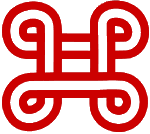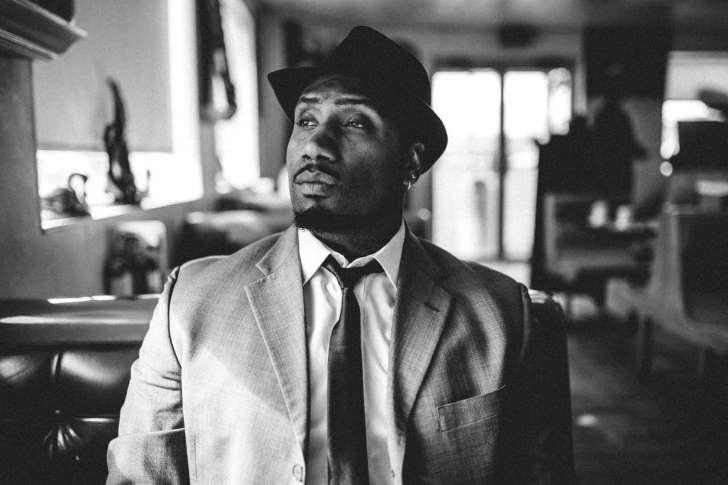Join us at the Second Tuesday Race Forum, held Tuesday, October 10 at 7 PM at the Park Hill United Methodist Church at Montview Blvd and Glencoe St. in Denver. Entrance and accessibility information can be found at the bottom of this announcement.
Leadership, identity, and the Movement for Black Lives
As each of us seeks out ways to engage more deeply in racial justice work and reflection, the planning team thought it would be good to hear directly from some of Denver's leaders in that work.
Who are those leaders?
The Rev. Osagyefo Sekou, a middle-aged black man, Christian minister, and renowned activist and singer, told Yes! Magazine, “The leadership is [often] black, poor, queer, women. . . . I am not a leader in this movement; I am a follower."
*While many older folks understand the word "queer" to be an insult, today many gay, lesbian, and bisexual people proudly consider themselves part of the queer community.
Rev. Sekou points us to an uncomfortable and important truth: Often, people assume that they should just call the NAACP, or an older black male pastor, to look for racial justice leadership. Today, though, it is often younger leaders--sometimes religious, sometimes not--and often female or gender non-conforming, often part of the LGBTQ community, who are at the forefront of what we know as the Movement for Black Lives.
The Second Tuesday gathering will be a chance to hear directly from younger leaders in the movement. Co-leader Kenny Wiley will facilitate a discussion with Olivia Hunte, Michael Diaz-Rivera, and Roshan Bliss, and possibly a fourth panelist as well.
Note: As it turned out in the moment a fourth panelist , Kim Barrett, did join to group.
Their bios can be found below.
The discussion will explore four key questions:
What is the current racial justice landscape in the Denver metro area?
How have racial justice movements shifted in recent decades? Do we have misunderstandings about the leadership of the Civil Rights movement of the 50s and 60s?
Is it okay to have a "fractured" movement for racial justice?
How do our identities--race, gender, sexuality, and age in particular--impact the roles we ought to take on within justice movements?
There will be opportunities for listening, questions, small group conversations, and more during our two hours together.
All are welcome. Please share this announcement with your networks. If you are a Facebook user, we ask that you post this announcement on your page.
Read below for accessibility information and panelist bio information. Again, share on Facebook, over email, and old-school asking people in person to join you!
See you Tuesday night!
Bios:
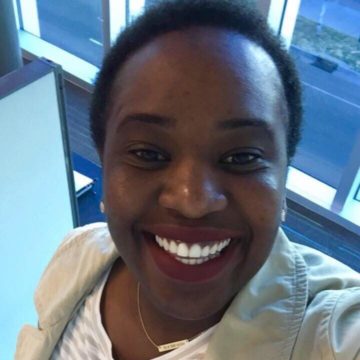
Olivia Hunte is a passionate individual dedicated to fighting systemic oppression and challenging privilege. Her interest in racial justice began in college where she served on the executive board for the Georgia Southern University chapter of NAACP. In 2013, Olivia relocated to Denver for grad school and successfully earned her Master’s in Social Work (MSW) from the Graduate School of Social Work at the University of Denver.
Her fight to combat social and racial injustices has since evolved, and is now primarily focused on community and healing. Olivia works intentionally to build identity-affirming spaces centering the voices of those placed on the margins of society. She does so through her publication, Intersections, as well as through her community involvements, most notably, serving as Youth Program vice Chair for Colorado Black Women for Political Action.
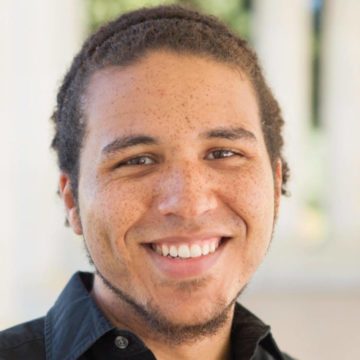
Roshan Bliss is a black community organizer, trainer, and facilitator who has been living and working in Denver since 2010. Like many in his generation, he is saddled with a staggering student debt load and struggles not to feel pessimistic about the state of our country and the future of the planet. Nonetheless, Roshan's belief that a fundamentally transformed world is possible have led him to be an active part of several different social movements over the years, including the international student movement and Denver's manifestations of the Occupy Wall Street and Black Lives Matter movements.
Roshan is a co-founder of the Denver Justice Project, a grassroots racial justice organization envisioning the transformation of law enforcement and the end of mass incarceration, and he currently serves as the criminal justice organizer for a multi-racial, multi-faith organization called Together Colorado. Over the last several years, his commitment to a world without racist prisons and police have led him to a deep exploration of truth and reconciliation processes and restorative justice that he hopes will continue for the rest of his life.
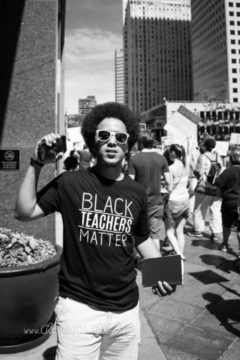
Michael Diaz-Rivera is no stranger to the struggle, born and raised on the south side of Colorado Springs. He moved to Denver when he attended Metropolitan State University of Denver where he studied Psychology with a minor in art and a focus on youth from “at-risk” condition. Passionate about youth he originally pursued mentoring before landing in education. His favorite form of activist is through his 5th grade classroom, but spends his free time as an organizer with Black Lives Matter 5280.
Kim Barrett
Kim’s dedication to racial justice, healing and anti-oppression work started before she was born. She follows in the footsteps of her ancestors, channeling her African and Indigenous Caribbean heritage. Over the last ten years, Kim has utilized organizing, natural resources research and media as vehicles in her fight in justice work. She holds a B.S. in Natural Resources Management and a B.A. in Environmental Studies focusing on community engagement, advocacy and fisheries science. Kim has created nature based youth programming and conducted research projects with organizations and agencies such as the United States Forest Service, United States Fish and Wildlife Service, National Park Service, and Vermont Fish and Wildlife.
Kim is grateful for the opportunities she’s had to be in community and fellowship with the many talented healers, organizers and community activists here in Denver. Kim is interested in creating spaces that center and refocus (BIPOC) Black and Indigenous People Of Color voices, stories and wisdom. Her work exists at the intersections of decolonizing the outdoors, healing justice, environmental justice, destroying systems of oppression and creating space for POC and (QTPOC) Queer Trans People Of Color in nature and the outdoors.
Accessing the Forum
It seems that some folks have been confused about what entrance to the church to use. There is a large parking lot on the north side of the church that is accessible off of Glencoe St, that is just east of the church. The door to the church you should use is the one that opens onto that parking lot. If you have passengers with mobility difficulties, you can pull up to that entrance and then park in the lot or on the street. Just inside the door, take the stairwell down to the lower level and follow the hallway, turning to the left into the Youth Lounge. If the stairs are difficult, go straight ahead from the door and find the elevator in the narrow hallway.
IMPORTANT UPDATE: Many of you have heard that Park Hill United Methodist Church is now a sanctuary location with a family currently seeking refuge there. Security has been enhanced as we continue to be welcomed to use the building for our meetings. We can only enter the building from the parking lot where someone will be there to open the door for us. You may not be able to gain access if you are more than 45 minutes late.
